On Jan. 19, a week before the Biden-Harris administration announced it will pause all decisions on new applications for new liquefied “natural” gas (LNG) export terminals, Oscar-winning actress and longtime environmental activist Jane Fonda joined hundreds of people outside of the America’s Energy Summit and Exhibition in New Orleans to protest the expansion of liquified “natural” gas (LNG) facilities in the U.S.
“It feels like looking into the devil’s eyes,” Fonda said to the crowd. “They’re right on beaches, they’re right next to communities, they’re right next to homes. I’ve talked to people who have lost what was theirs over generations and are losing their livelihoods, the fishing, the oystering, the shrimping, their homes now. It’s clear to me that those men don’t care about human life.”
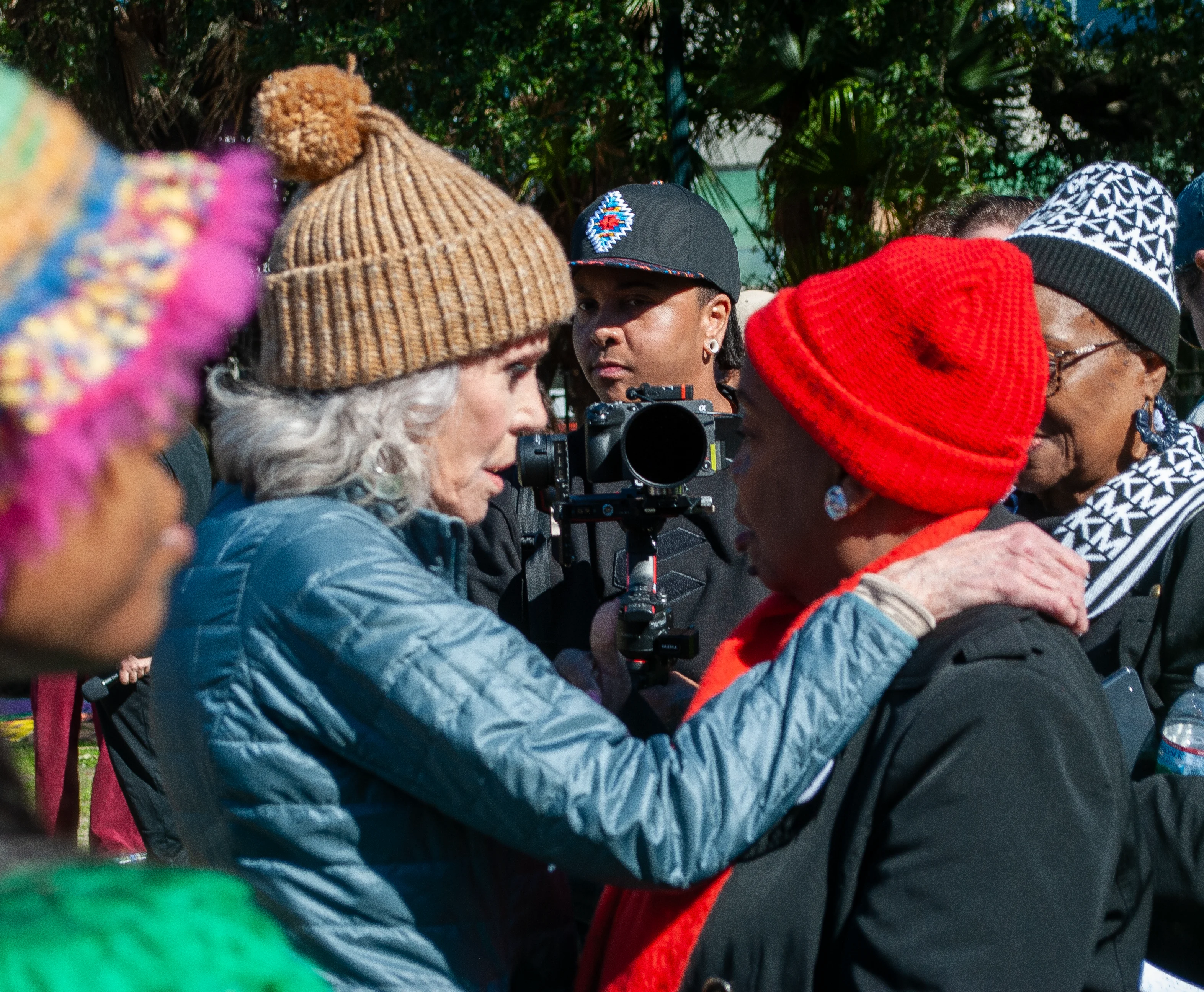
The fossil fuel industry is racing to build roughly 20 new and expanded methane gas export facilities (aka LNG terminals), concentrated in communities across the Gulf Coast. This is the largest fossil fuel buildout in the United States and perhaps the world. According to energy analysts, the emissions from the projects could exceed those of over 850 coal fired power plants — the entire continent of Europe.
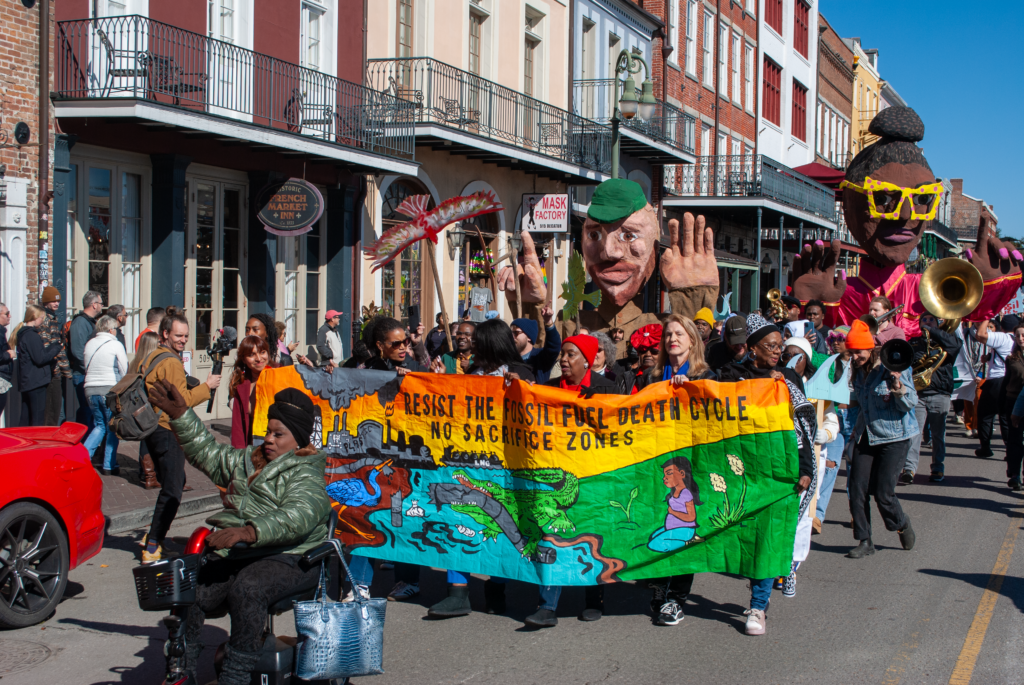
Hundreds of people march through New Orleans on Jan. 19, 2024 to protest the expansion of fossil fuel projects on the U.S. Gulf Coast.
The protest marked the end of a week of distributed actions organized by Sunrise New Orleans alongside a coalition of environmental organizations including The Permian Gulf Coast Coalition, The Vessel Project of Louisiana, RISE St. James, and For A Better Bayou to confront fossil fuel executives and send the message that LNG projects are not welcome in local communities.

The march ended at The Ernest Morial Convention Center with a performance of a political puppet show by Sunrise New Orleans. Photo by Zensuke Omi, Tikkun Olam Productions.
LNG projects are contingent on approval from the Biden administration, which has pledged to reduce climate-warming emissions and protect environmental justice communities. New export terminals and infrastructure are sited in low-income communities, communities of color, and on Indigenous lands due to decades of economic disenfranchisement and systemic racism. These same communities are also the hardest hit by climate disasters, which is caused by the emissions from fossil fuel production and use. Emissions from new export facilities and associated onshore infrastructure will push the world closer to climate catastrophe at a time when it is clear we need to phase out fossil fuels to avoid even more tragic climate disasters like fires, hurricanes, and heat waves.
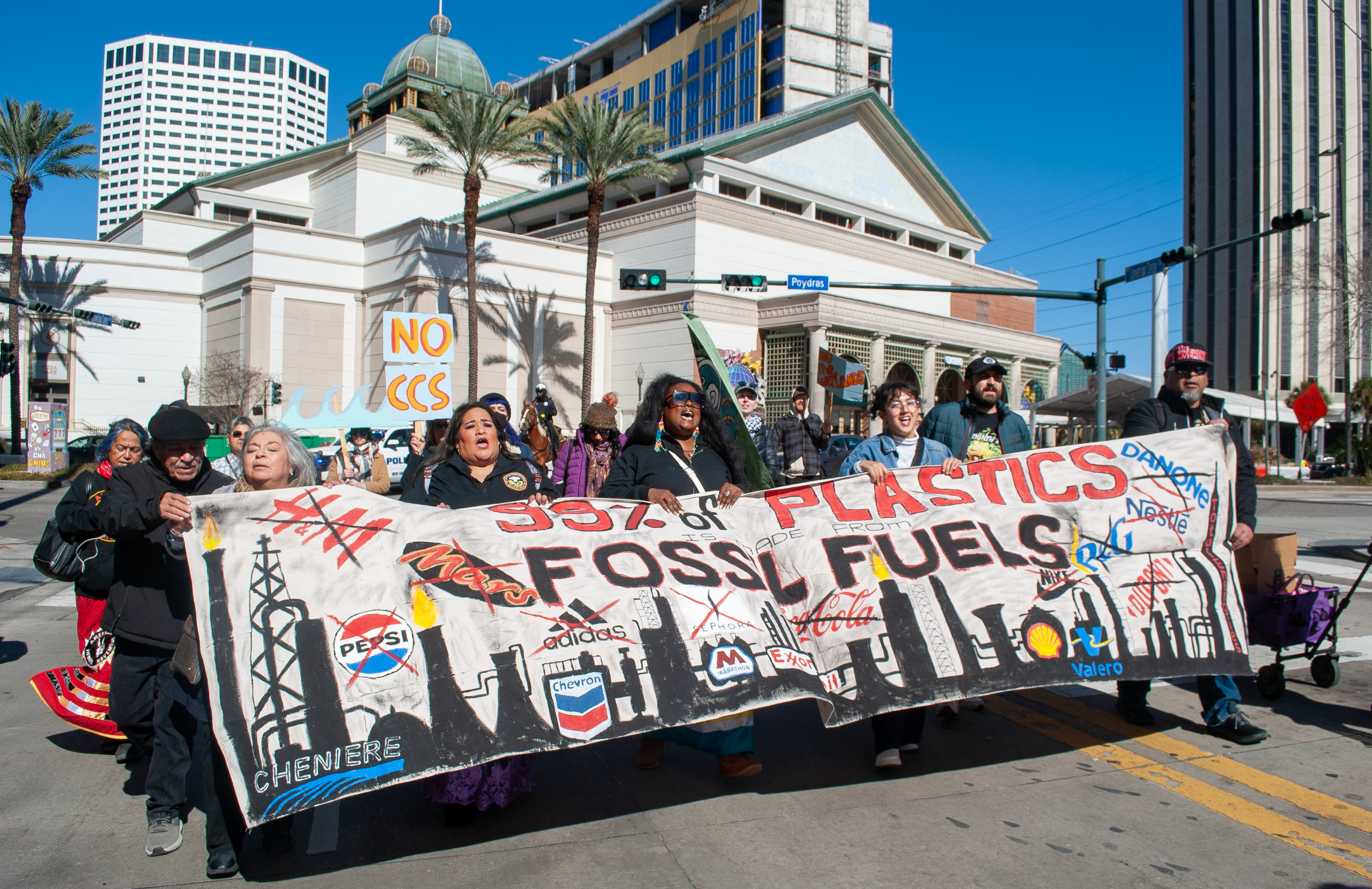
Members of the Carrizo/Comecrudo Tribe of Texas were among the hundreds of people marching through downtown New Orleans to confront the fossil fuel industry on January 19, 2024.
Dozens of fishermen with Fishermen Involved in Sustaining our Heritage (FISH) took the day off from during one of the busiest seasons for fishermen to travel more than 400 miles round trip from Cameron, Louisiana to confront the fossil fuel industry for the facilities that threaten the local economy, where fishermen fear the buildout will destroy their way of life, harm local ecosystems and public health, and raise energy costs. They parked their boats outside of the conference on Friday, forcing the conference to end early as they protested harmful LNG expansion.
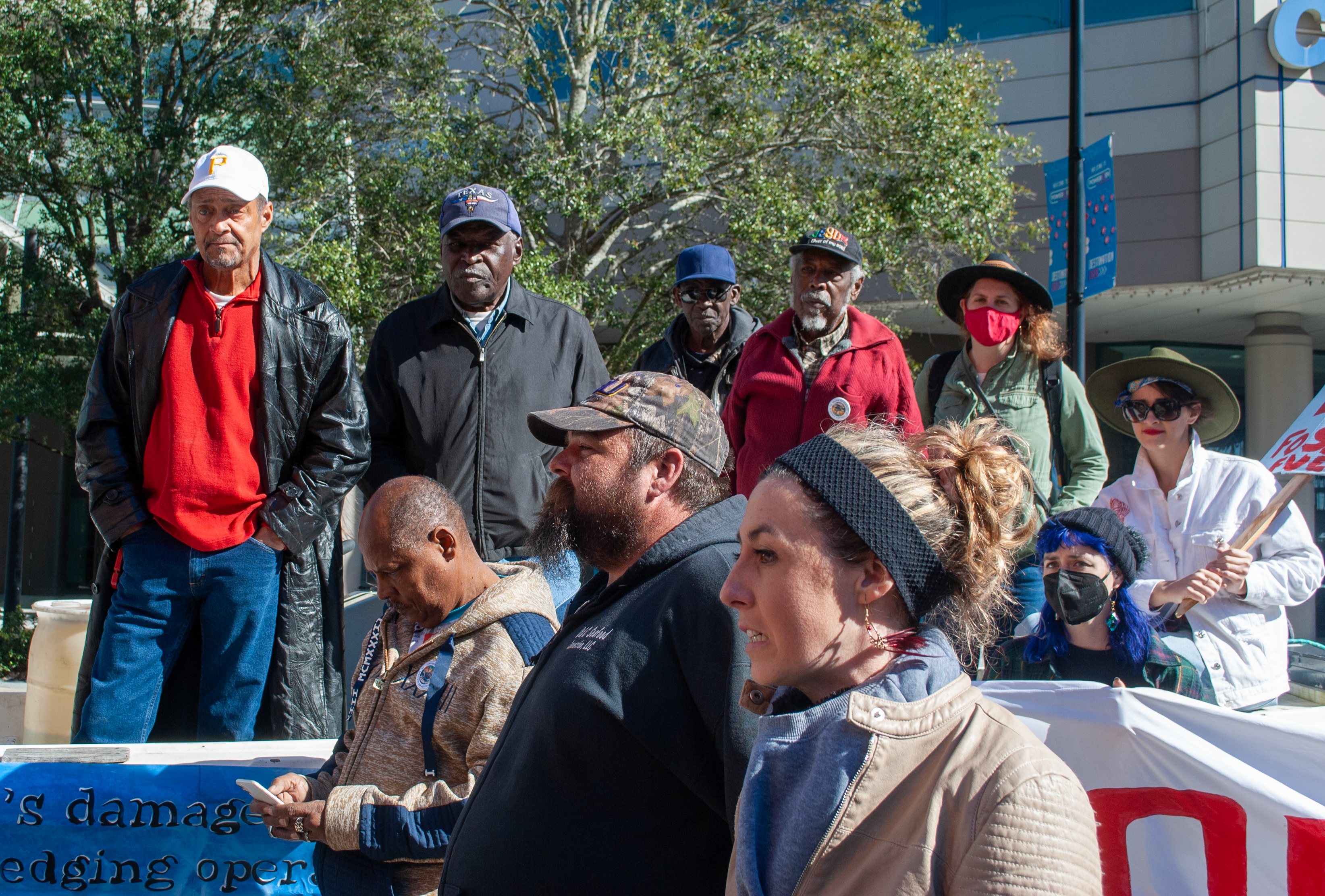
Dozens of fishermen with the Fishermen Involved in Sustaining our Heritage (FISH) took the day off from feeding U.S. families to travel more than 400 miles round trip from Cameron, Louisiana to confront the fossil fuel industry in New Orleans.
Today’s pause on new LNG projects sets the stage for potential rejections and slows down the progress of these projects, making it much harder for them to secure financing. But the fight for clean air and clean water on the Gulf Coast is not over.
“While this decision is a significant victory, we must not become complacent,” said Roishetta Ozane, founder of The Vessel Project of Louisiana. “The fight for environmental justice and the elimination of fossil fuel extractive industries must continue. We must remain vigilant and continue to advocate for sustainable alternatives. We cannot afford to let up in our efforts to hold decision-makers accountable and ensure that frontline communities are no longer subjected to the harmful effects of these industries. This announcement is a reason to celebrate, but it is also a reminder that our work is far from over.”
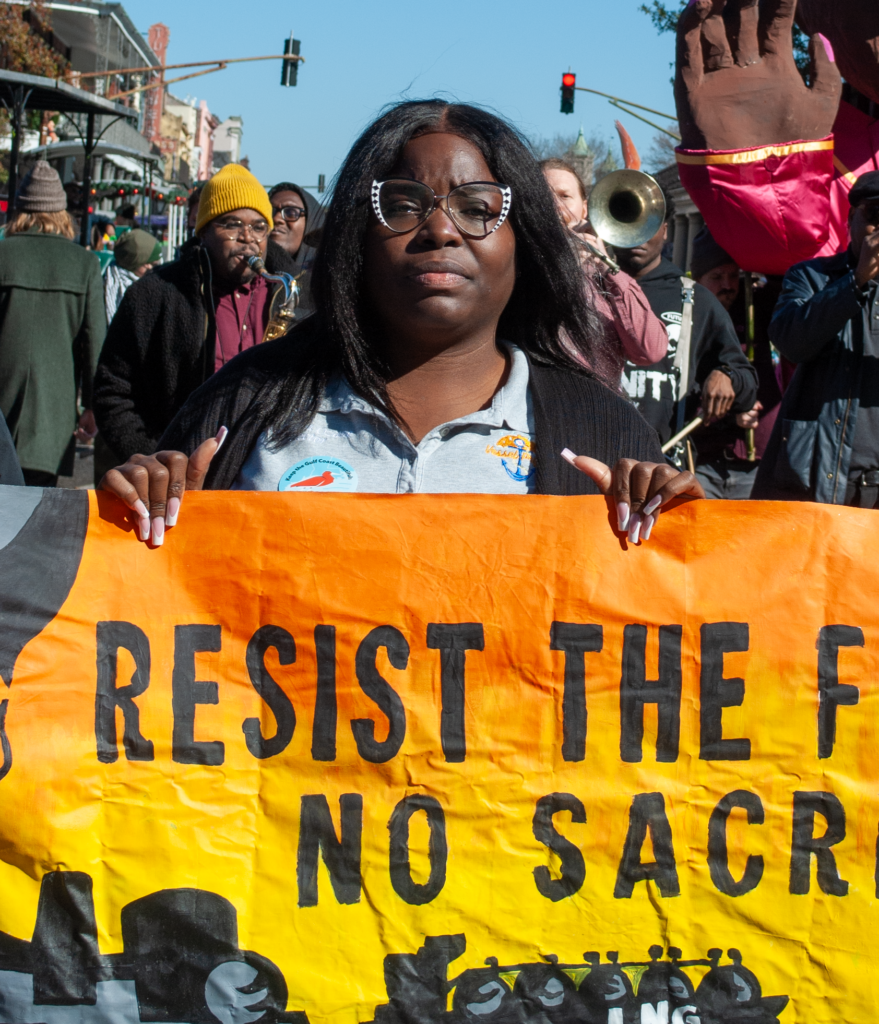
Left: Rosihetta Ozane, founder and director of The Vessel Project of Louisiana, led the march to protest new LNG facilities through downtown New Orleans on January 19, 2024.
“I’m thankful for this pause in granting gas export licenses; the DOE has finally heard the wake-up call,” said James Hiatt, Director of For a Better Bayou. “The gas industry was planning to inundate my hometown with LNG terminals. These gas export terminals, like CP2, are not just an environmental threat; they’re an economic burden on American families. As the U.S. Energy Information Administration points out, exporting LNG drives up domestic energy costs, affecting everything from home heating to food prices. It’s time to really assess our priorities and consider the wider implications of these projects – there’s no Public Interest in padding the pockets and short-term profits of big gas companies on the backs of every American family.”
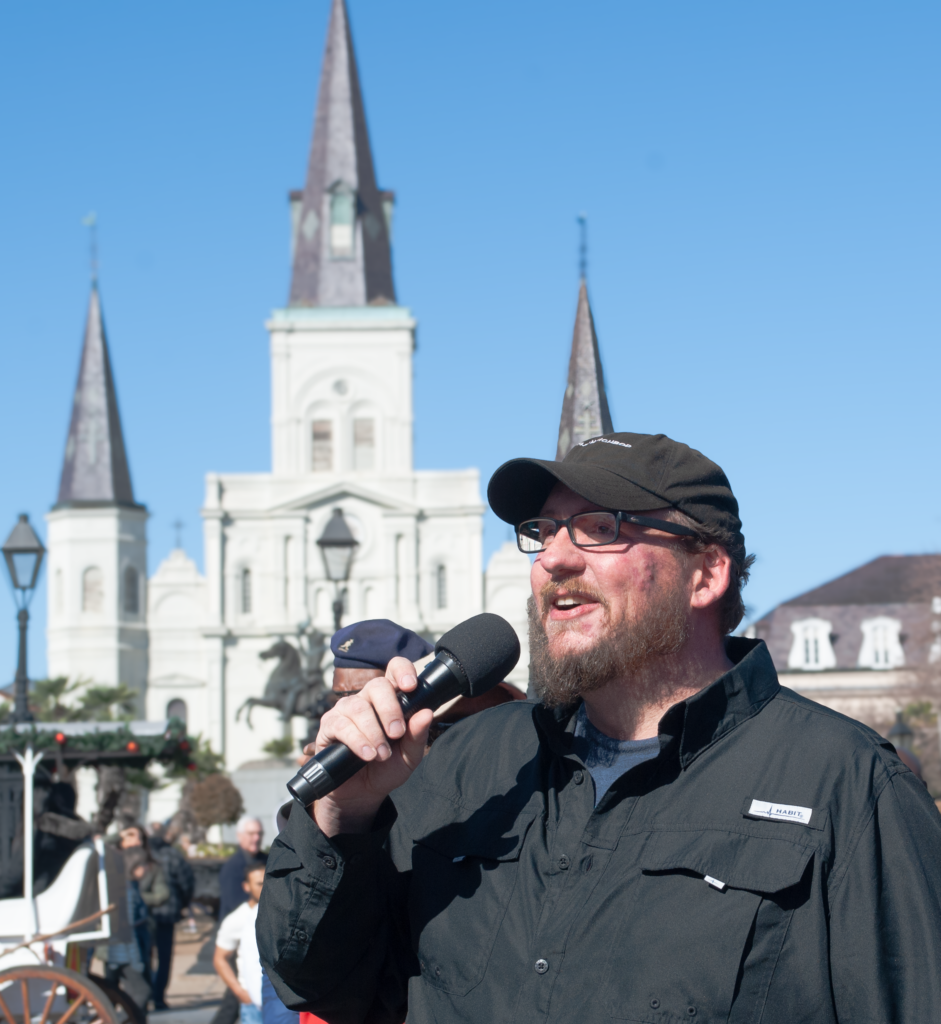
Right: James Hiatt, founder of For a Better Bayou, speaks to a crowd before marching with hundreds of people in downtown New Orleans on January 19, 2024.

